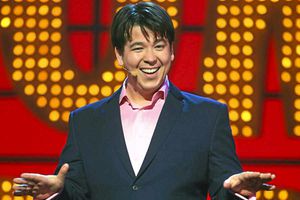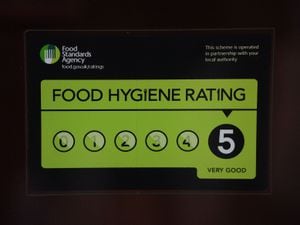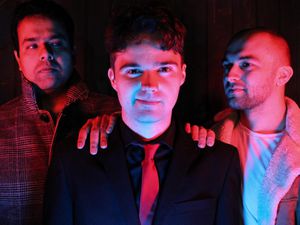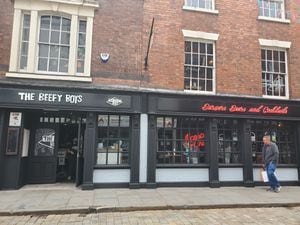Funny Business - TV review
When celebrities start making appearances on television advertisements, it is usually a sure sign that their careers have peaked.

There are exceptions, of course. Renowned physicist Stephen Hawking has rightfully retained our respect despite his recent slot with Britain's most reviled opera singer in a tongue-in-cheek Go Compare advert.
But when comedians do it, well that is surely a creative compromise too far. Their role is not only to 'make 'em laugh'; it is to stick it to the system.
Last night, radio and television presenter Eddie Mair narrated the first instalment of this new three-part documentary, taking a look at today's comedy scene and the people who make millions from it.
The episode, titled Gags to Riches, gave a depressing insight into how the industry can be poisoned by money, as told by notable comedians and the suits they work with.
It began by examining the world of corporate gigs – and it was staggering to learn how high the going rates can be.
A 20-minute booking with Michael McIntyre, star of his own Comedy Roadshow, will cost you upwards of £40,000, for example.
Until breaking onto our television screens he had spent years hopelessly travelling the country in a banged up Rover, playing to handfuls of disinterested pub-dwellers at whatever venues he could get. It is not difficult to see why so many are tempted over to the 'dark side'.
But all that was not enough to stop me looking down my nose at the corporate sell-outs who now play in swanky London hotels to crowds of often equally-disinterested suits.
Among the comedians interviewed, regular QI panellist Jo Brand was a particular breath of fresh air.
She openly voiced her distaste for the way in which her profession can be tarnished by the corporate world.
"You get so many people saying, 'Just take the money and shut your gob. Who cares?' But I do care," she said.
Others interviewed included John Cleese, Rhod Gilbert, Arthur Smith, Mark Thomas, Clive Anderson and Barry Cryer. Some took Brand's side, while others embarrassingly tried to justify their corporate decisions.
They were helped along by professional corporate bookers, who seemed to be addressing their clients rather than the viewers when they spieled about corporate gigs being simply a way to recruit new fans.
It all smacked of a negotiator trying to talk someone down from a ledge.
And the justifications only grew flimsier when the programme moved on to discuss advertising.
Luckily, though, Monty Python and Fawlty Towers legend John Cleese was there to bring us back to reality. He, too, has done his fair share of adverts over the years, but he seemed genuine when he said he always checked the companies were honourable and the scripts were funny, before signing on the dotted line.
Welsh funnyman Rod Gilbert, speaking in his gruff tones, described his 'look me in the eye' system, which, he said, almost always convinced him not to accept offers.
The show ended with a short but rather interesting section on 'branded content', a new advertising concept whereby brand names sponsor adverts that are entirely the creation of comedians, with no meddling from higher-ups.
Examples include the Foster's ad campaign featuring two agony uncle surfers living in a beach hut.
It was a respectable way to sneak in an uplifting ending, but, again, Cleese dashed it somewhat with a decent summary of the programme - which also set up next week's episode, when managers and agents will be under the microscope.
"Wherever you look now, money's spoiled it," he declared.
Will Ackerman





